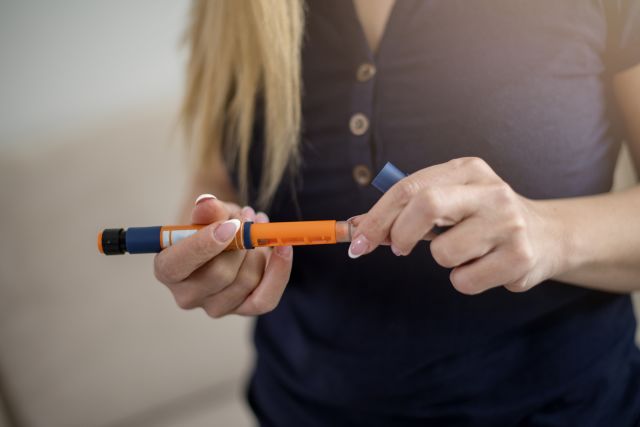Updated on March 26, 2024.
More than 30 million people in the United States are managing diabetes, a chronic medical condition where the body does not produce enough insulin or cannot effectively use the insulin the body does produce. Insulin is an important hormone that is vital to regulating blood sugar levels in the body.
Insulin injections are one of the most commonly prescribed treatments for diabetes. Below are five factors that can affect how well an insulin injection works.
The site of the injection
Insulin is absorbed most quickly when injected into the abdomen and second most quickly when injected into the upper arms; insulin injected into the legs or buttocks will be absorbed more slowly. However, if you inject in the exact same site all the time, you can develop scar tissue that can result in delayed absorption of the insulin. To avoid scarring, rotate injection sites and leave at least two inches between injection sites. Make sure to inject into fatty tissue, and do not inject into muscle, which can cause bruising and pain.
Exercise
When you exercise, you're more sensitive to insulin—as your muscles work and use the insulin, the tissues of the body also may be more efficient at using insulin. This is why people may feel like their blood sugar is decreasing during exercise. While exercising can signify that you need less insulin, occasionally very intense exercise increases blood sugar and may increase your needs for insulin.
Other medications
Certain medications can interfere with the effectiveness of insulin. This includes beta-blockers, which are used to treat high blood pressure, and niacin, a B vitamin that lowers blood lipids (also called cholesterol, a fat-like substance in the blood), which is often prescribed for patients who need to improve their cholesterol levels. This is one reason why it is important that your healthcare providers are aware of all medications that you are taking.
Stress and illness
Stress and illness can both raise your blood sugar. When you are stressed, your body releases certain hormones that can keep your body from producing sufficient insulin or using it effectively. Individuals with diabetes who have gastroparesis (a digestive disorder) may not digest their food properly—and because their digestive tract isn't working correctly, these patients who receive insulin are at risk of becoming hypoglycemic, which is when blood sugar levels become very low and cause symptoms like shakiness, sweating, fatigue, irritability, and dizziness. Left untreated, severe hypoglycemia can become life-threatening and can cause unconsciousness or coma (unconscious and not able to be woken up or respond to outside stimulation).
Dehydration
If you don't drink sufficient water, you may not absorb insulin as quickly. And dehydration increases blood sugar, and may cause short-term resistance to insulin.






